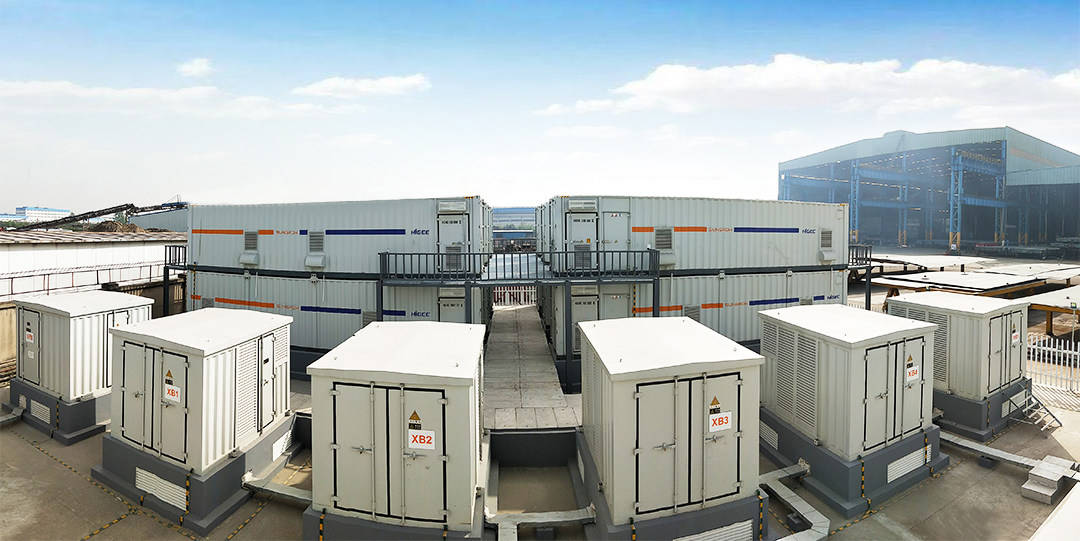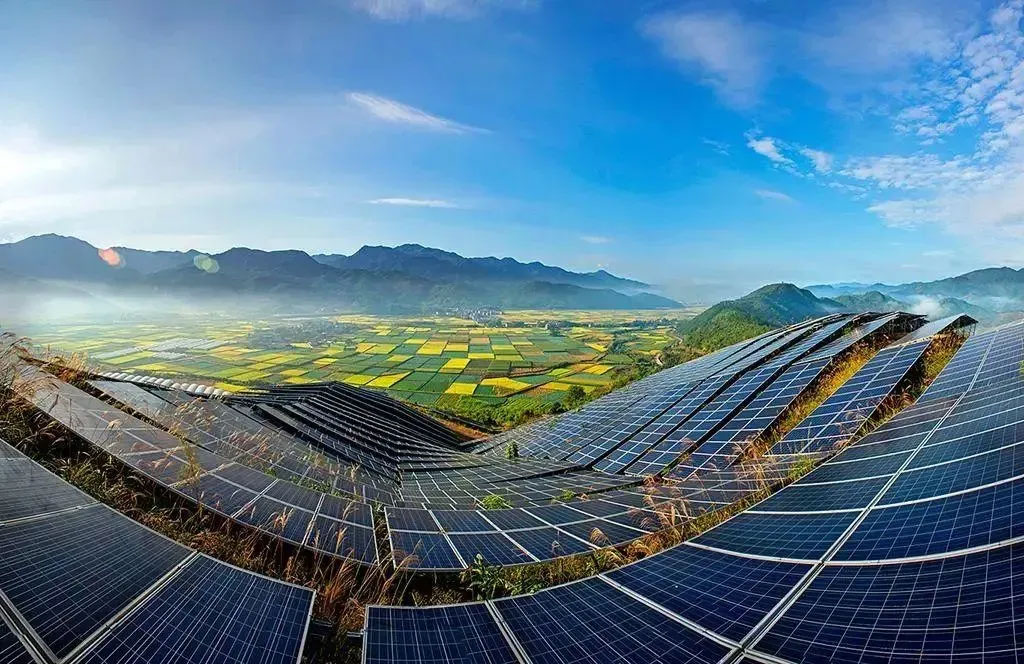【Metaverse News】Service supply chain finance, blockchain, big data and other technologies have become standard configurations for banks
"Nowadays, financial institutions support the development of the supply chain industry, which is very different from before." On November 29th, a bank participant told a reporter from Shell Finance at the first Chain Expo that the current supply chain finance of banks is full of "technological sense", which can meet the different financial needs of enterprises.
The first Chain Expo was held in Beijing from November 28th to December 2nd. At the exhibition, multiple domestic and foreign banks including ICBC, Bank of China, Bank of Communications, Standard Chartered, HSBC, Dahua, etc. gathered to tell the story of using financial technology to support the development of the supply chain industry.
Industry insiders have pointed out that one of the "five major articles" proposed at this year's Central Financial Work Conference is "Digital Finance". This means that it is necessary for financial support to support the digital development of industries in the future. In the process of supporting industrial digitization, banking and financial institutions can only further achieve digital development and integrate their own products into enterprise development in order to better promote industrial digitization. Among them, supply chain finance is one of the important levers.
Recently, the central bank and eight other departments issued 25 financial and private economy regulations, which also pointed out the need to actively carry out industrial chain and supply chain financial services. Among them, banking and financial institutions should actively explore supply chain decommissioning models and support private small and medium-sized enterprises in the supply chain to carry out order loans, warehouse receipt pledge loans, and other businesses.

Technological power continuously enhances the trust of small and micro enterprises in the supply chain
"Whether it is the supply chain or cross-border e-commerce trade, small and medium-sized enterprises are the main force, and they have played an important role in the process of China's economic development." Hong Jun, Vice President of Standard Chartered Bank (China) Co., Ltd., said in an interview with Shell Finance reporter from the New Beijing News that due to incomplete data and limited collateral, small and medium-sized enterprises are often at a disadvantage in the actual financing process.
In order to bridge the data gap, Standard Chartered Bank has attempted to collaborate with supply chain fintech companies to address the financing difficulties faced by small and medium-sized enterprises upstream and downstream of the supply chain. Standard Chartered Xunlian, with digitalization as its core and relying on the credit of large enterprises, empowers small and medium-sized enterprises in the chain. In this system, operations such as uploading enterprise data and information can make supply chain management more transparent and efficient, as well as help reduce costs and control risks. This also provides a data foundation for subsequent bank credit.
Standard Chartered's services are only a microcosm of technology empowering bank supply chain financial services in recent years. According to a reporter from Shell Finance, technologies such as blockchain, big data, and artificial intelligence have all become "standard" technologies in bank service supply chain finance. Under these technologies, bank services have gradually shifted from front-end to back-end, becoming more flexible and ubiquitous.
The relevant person in charge of Bank of China told Shell Finance reporters that the channels for banks to serve the supply chain industry are becoming more open. Banks have been able to meet the access needs of different enterprises, from the past when enterprises could only handle transactions at the bank and only on the transaction banking platform provided by the bank.
"Banks' services not only provide enterprises with their own trading platforms, but also embed products as' modules' into core enterprises, third-party platforms, or scenario based platforms according to the requirements of enterprises and industries. According to relevant personnel from Bank of China, the bank invites more market entities such as core enterprises, fintech companies, and financial peers to jointly build an integrated service system and create an open Boundless panoramic open ecosystem.

More than ten supply chains, including green chain and automotive chain, have become important driving points for banks
According to a reporter from Shell Finance, more than ten supply chains, including green chain, automotive chain, agricultural chain, and pharmaceutical chain, have become important driving forces for banks at present.
Taking the green industry chain as an example, multiple banks have increased their support for the green transformation of enterprises and supply chains.
Bank of Communications stated that clean energy is crucial to the future development of humanity. The bank will increase its support and services for industries such as clean energy, energy conservation and environmental protection, clean production, ecological environment, and green upgrading of infrastructure, with a focus on new technologies and products emerging in fields such as wind power, photovoltaics, energy storage, hydrogen energy, smart grids, and low-carbon traditional energy. The bank will fully utilize carbon reduction support tools The central bank's monetary policy tools, such as special refinancing for clean and efficient utilization of coal, will continue to increase credit allocation, actively increase the proportion of green credit for central enterprise customers, and support the new energy layout of central enterprises through investment and loan linkage.
HSBC also stated that it has launched a series of green finance products and services to help businesses accelerate their low-carbon transformation.
"As companies accelerate the promotion of sustainable procurement, some multinational companies are no longer satisfied with their own green and low-carbon transformation and hope to achieve a green and low-carbon transformation of the entire supply chain." The relevant person in charge of HSBC stated that due to the different efforts of various participants in the chain in promoting sustainable business development, they face difficulties and challenges in their work practice. And the bank can classify and price the financing plans of suppliers based on sustainability ratings developed by core enterprises or certified by third parties, incentivizing suppliers to improve their level of sustainable development.
In addition, Industrial and Commercial Bank of China (ICBC) also pointed out that in assisting the development of the supply chain, ICBC has deeply built a digital supply chain financial product system, deconstructed blockages in the industrial chain, tilted credit policy resources, and fully supported key areas and weak links of the real economy such as manufacturing, agriculture, strategic emerging industries, and green industries.
Data shows that as of the end of September, the balance of Industrial and Commercial Bank of China's manufacturing loans exceeded 3.7 trillion yuan, the balance of agricultural loans exceeded 4.1 trillion yuan, the balance of strategic emerging industry loans reached 2.4 trillion yuan, and the scale of green industry loans continued to grow significantly.

Cross border services have become a battleground for Chinese and foreign banks
Cross border financial services have become a battleground for domestic and foreign banks. At this Chain Expo, cross-border financial services are also one of the important contents exhibited by various banks.
At the booth of ICBC in the first Chain Expo, the large screen of "ICBC Global Payment" scrolls real-time information on the current transaction amount and number. According to the staff of the bank, this is ICBC's global payment and settlement network, which can provide customers with "one point access, global response" cross-border payment and settlement services, empowering enterprise financial centralized management and global business development.
It is reported that in terms of serving global trade, ICBC focuses on building a cross-border RMB service system, deepening domestic and overseas linkage, building a financial bridge for the joint construction of the "the Belt and Road", and providing high-quality services for RMB internationalization and high-level opening up.
Bank of Communications has launched a comprehensive foreign trade service platform to assist small and medium-sized enterprises in reducing trade costs and improving trade convenience by providing comprehensive services such as customs clearance, tax refund, logistics, insurance, settlement, and financing. Bank of Communications has innovatively applied open banking technology to successfully connect with cross-border foreign trade comprehensive service platforms in multiple regions, realizing the interconnection of transaction information among the platform, export enterprises, and banks, and providing full visual, fast, and efficient fund settlement services for small and medium-sized export enterprises on the platform.
In fact, in the process of the development and growth of the private economy, increasing foreign exchange facilitation policies and service supply, and supporting private enterprises to "go out" and "bring in" are also important aspects. Improving the convenience level of current account income and expenditure, improving cross-border investment and financing facilitation policies, and optimizing cross-border financial and foreign exchange characteristic services are all the key areas that financial institutions will continue to focus on in the future.
In addition to Chinese banks, foreign banks also have advantages in cross-border services and are optimistic about China's future cross-border supply chain layout.
The recent survey report "Overseas Enterprises Looking at China 2023" released by HSBC shows that China still maintains a core position in the global supply chain, with over 70% of surveyed companies expected to increase their supply chain layout in the next three years. Among them, manufacturing companies are particularly active in expanding their supply chain layout in China, with about three-quarters of companies planning to increase their supply chain layout in China within the next three years. Meanwhile, the bank has launched multiple services on cross-border finance.
In addition, the relevant person in charge of Dahua Bank also stated that China and ASEAN have been each other's largest trading partners since 2020. As China solidly promotes high-quality development, it is moving upstream from traditional manufacturing to the value chain of high-quality growth. The industry is also shifting towards more advanced manufacturing processes, important raw material processing, technological investment, and the development of integrated domestic and foreign industrial chains. ASEAN countries with market, resource, and labor advantages complement China's value chain advantages.
"Currently, many enterprises are actively utilizing the RCEP tariff reciprocity and origin accumulation principles to layout the ASEAN supply chain and the Chinese market. In this process, cross-border liquidity and convenience of income and expenditure are crucial for enterprises. Dahua Bank pointed out that the bank has launched a" trade direct train "between China and ASEAN, a cross-border fund pool, and a one-stop account service for cross-border investment and financing, to meet the diverse needs of enterprises for coordinating funds, controlling operational risks, and improving overall capital returns.".
 中文
中文
 English
English



